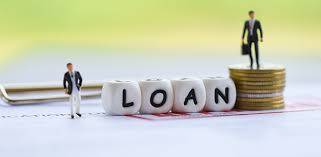Why You Should Avoid Payday Loans and High-Interest Debt
In times of financial need, payday loans and other forms of high-interest debt might seem like quick fixes. However, these options often lead to a cycle of debt that can be challenging to escape. Understanding the risks associated with payday loans and high-interest debt can help you make informed decisions that safeguard your financial well-being.
1. Understanding Payday Loans
Payday loans are short-term, high-interest loans typically due on your next payday. They are often marketed as quick solutions for emergencies or unexpected expenses. While they may provide immediate cash, they come with significant downsides that can create long-term financial problems.
Example: If you borrow $500 with a two-week repayment term and a typical APR of 400%, you might owe over $575 on your next payday, which can quickly lead to a cycle of borrowing to cover the repayment.
Key Insight: The high fees and interest rates associated with payday loans can trap borrowers in a cycle of debt, often requiring them to take out new loans to pay off old ones.
2. The Cycle of Debt
One of the most significant risks of payday loans is their potential to create a cycle of debt. Borrowers may find themselves unable to repay the loan on time, leading them to take out additional loans to cover the initial amount. This pattern can spiral out of control, resulting in mounting debt and financial strain.
Example: A borrower who takes out multiple payday loans may find their total debt exceeding thousands of dollars within a few months, far surpassing the initial amount borrowed.
Tip: Avoid falling into this trap by recognizing the warning signs and seeking alternatives before resorting to payday loans.
3. High-Interest Rates
Payday loans and other high-interest debts often come with exorbitant interest rates, which can make even small loans incredibly costly over time. These high rates are designed to maximize lender profits but can devastate borrowers who struggle to repay.
Comparison: For context, the average credit card APR hovers around 15-25%, while payday loans can reach APRs of 400% or more, making them one of the most expensive borrowing options available.
Key Insight: The longer you take to repay a payday loan, the more interest accrues, creating a heavier financial burden.
4. Impact on Credit Score
Payday loans typically do not directly impact your credit score; however, failing to repay them can lead to collections, which can harm your credit history. Missing payments can result in fees and more debt, making it harder to manage your finances and leading to lower credit scores.
Example: A collection agency pursuing a payday loan debt can lead to negative marks on your credit report, affecting your ability to secure loans or favorable interest rates in the future.
Tip: Consider the long-term implications of taking out high-interest loans on your financial health and creditworthiness.
5. Financial Stress and Anxiety
The burden of high-interest debt can lead to significant stress and anxiety. Constantly worrying about repayment can affect your mental health and overall well-being. The pressure to meet financial obligations may limit your ability to focus on other essential aspects of life, such as work, family, and personal growth.
Example: Individuals trapped in a cycle of payday loans often experience heightened stress, leading to difficulties in their personal and professional lives.
Key Insight: Prioritizing mental well-being is crucial; avoiding payday loans can alleviate unnecessary stress.
6. Healthier Alternatives to Payday Loans
Instead of resorting to payday loans, explore healthier financial alternatives. Consider the following options:
Credit Unions: Many credit unions offer small loans at significantly lower interest rates compared to payday lenders. Joining a credit union can provide access to better financial products.
Payment Plans: If you face an unexpected expense, speak with your creditors about setting up a payment plan or deferment option to ease the financial burden without high interest.
Emergency Funds: Building an emergency fund over time can help cover unexpected expenses without resorting to high-interest loans.
Peer-to-Peer Lending: Platforms that facilitate peer-to-peer lending can offer more favorable terms than traditional payday loans.
Community Resources: Nonprofit organizations may provide assistance for those facing financial difficulties, including food banks and financial counseling services.
7. Educating Yourself on Personal Finance
Improving your financial literacy can empower you to make better borrowing decisions. Understand your options, the true costs of borrowing, and how to manage your money effectively.
Example: Financial literacy programs or workshops can teach essential skills, such as budgeting, saving, and responsible borrowing.
Tip: Seek resources from trusted financial websites, local libraries, or community centers to increase your understanding of personal finance.




No comments yet
Be the first to share your thoughts!